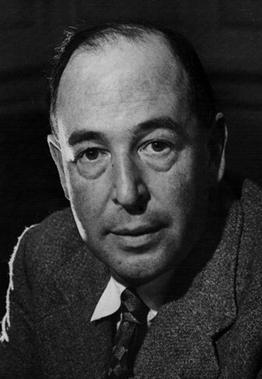C.S. Lewis: A Profound Thinker, Writer, and Apologist
Clive Staples Lewis, better known as C.S. Lewis, was a prolific British writer, scholar, and Christian apologist. Born on November 29, 1898, in Belfast, Ireland, Lewis went on to become one of the most influential Christian authors of the 20th century. His works span various genres, including fantasy, science fiction, theology, literary criticism, and philosophy. This article profiles C.S. Lewis, delving into his life, literary contributions, and the impact of his work, along with a bibliography and memorable quotes.
Early Life and Education
C.S. Lewis was born to Albert James Lewis and Florence Augusta Lewis. His early education took place at home under the tutelage of his parents and a private tutor. After his mother’s death in 1908, he was sent to various boarding schools in England, eventually enrolling at Malvern College. In 1916, Lewis was awarded a scholarship to study at University College, Oxford. However, his studies were interrupted when he enlisted in the British Army during World War I. After the war, he returned to Oxford and completed his studies, earning degrees in classics, philosophy, and English literature.
Academic and Literary Career
In 1925, Lewis began his academic career as a philosophy tutor at University College, Oxford. Later, he became a Fellow and tutor in English literature at Magdalen College, Oxford, where he taught from 1925 to 1954. In 1954, he was appointed Professor of Medieval and Renaissance Literature at Magdalene College, Cambridge, where he continued to teach until his retirement in 1963.
C.S. Lewis’s literary career is marked by a diverse range of works, including children’s literature, science fiction, apologetics, and essays. Some of his most notable works include:
- The Chronicles of Narnia series (1950-1956)
- Mere Christianity (1952)
- The Problem of Pain (1940)
- The Screwtape Letters (1942)
- The Space Trilogy (1938-1945)
- The Great Divorce (1945)
- The Abolition of Man (1943)
- Surprised by Joy (1955)
Reception and Legacy
C.S. Lewis’s works have garnered both admiration and criticism over the years. His admirers praise his literary style, imagination, and ability to communicate complex theological concepts in an accessible manner. Some notable admirers include J.R.R. Tolkien, Madeleine L’Engle, and Philip Yancey.
Detractors, on the other hand, criticize his theological arguments and occasionally find his writing style to be overly didactic. Notable critics include John Beversluis, who disputes Lewis’s apologetic arguments in his book C.S. Lewis and the Search for Rational Religion.

Memorable Quotes
- “You can never get a cup of tea large enough or a book long enough to suit me.” (from Lewis’s personal letters)
- “Aim at heaven and you will get earth thrown in. Aim at earth and you get neither.” (Mere Christianity)
- “Friendship is born at that moment when one person says to another, ‘What! You too? I thought I was the only one.'” (The Four Loves)
- “Some day you will be old enough to start reading fairy tales again.” (The Lion, the Witch, and the Wardrobe)
- “I believe in Christianity as I believe that the sun has risen: not only because I see it, but because by it I see everything else.” (Is Theology Poetry)
Bibliography
Fiction:
- The Chronicles of Narnia series (1950-1956)
- The Lion, the Witch, and the Wardrobe (1950)
- Prince Caspian (1951)
- The Voyage of the Dawn Treader (1952)
- The Silver Chair (1953)
- The Horse and His Boy (1954)
- The Magician’s Nephew (1955)
- The Last Battle (1956)
- The Space Trilogy
- Out of the Silent Planet (1938)
- Perelandra (1943)
- That Hideous Strength (1945)
Non-Fiction:
- Mere Christianity (1952)
- The Problem of Pain (1940)
- The Screwtape Letters (1942)
- The Great Divorce (1945)
- The Abolition of Man (1943)
- Surprised by Joy (1955)
Conclusion
C.S. Lewis remains a prominent figure in the world of literature and Christian apologetics. His works continue to inspire readers worldwide, and his influence is evident in the works of many contemporary authors. Although some detractors criticize his theological arguments and writing style, the impact of his work is undeniable. C.S. Lewis’s legacy will continue to endure as readers explore the worlds he created and engage with the ideas he presented in his writings.
